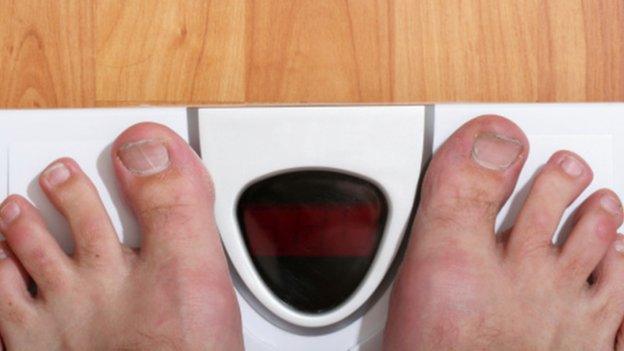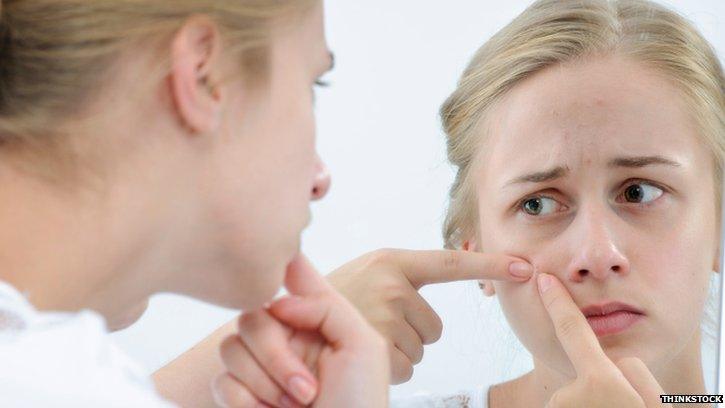Eating disorders in young men 'are being overlooked'
- Published

Men are under pressure to conform to the "ideal" body image, says the charity Beat
Young men with an eating disorder are not getting the help and support they need because of a perceptions about a "women's illness", say researchers.
Men are underdiagnosed and undertreated for anorexia and other eating disorders, despite making up about a quarter of cases, a UK study suggests.
Frontline health workers have a key role in identifying eating disorders in young men, they report in BMJ Open, external.
Men are under pressure to have the "ideal" body image, says a charity.
Researchers from the University of Oxford and University of Glasgow interviewed 39 young people aged 16 to 25, including 10 men, about their experiences of diagnosis, treatment and support for eating disorders.
They say young men with eating disorders were "underdiagnosed, undertreated and underresearched".
This is partly because the men themselves were unaware of the symptoms, despite purging, not eating for days or obsessive calorie counting, they said.
"Our findings suggest that men may experience particular problems in recognising that they may have an eating disorder as a result of the continuing cultural construction of eating disorders as uniquely or predominantly a female problem," said Dr Ulla Raisanen and Dr Kate Hunt.
One man said he thought eating disorders only affected "fragile teenage girls"; another said he thought eating disorders were "something girls got"; while one was told by his doctor to "man up".
Others said they often had to wait a long time for specialist referral and had sometimes been misdiagnosed.
GPs and other professionals such as teachers have a key role in improving the outlook for men with eating disorders by challenging misconceptions, the researchers said.

Some of the men weighed themselves excessively
And men themselves needed the courage to "speak up to somebody and contact a health professional to tell them what is going on", Dr Raisanen added.
Eating disorders include anorexia nervosa, bulimia nervosa; and binge eating disorder.
One estimate puts the cost to the NHS of treating eating disorders at £70m.
Cultural pressures
Commenting on the research, Leanne Thorndyke, of the Beat eating disorders charity, said a wider section of society is coming under pressure over their body image.
"The pressures on body weight and body image are affecting a much wider range of people, which obviously includes men," she told BBC News.
Eating disorders are complex - with a wide range of different factors, including genetics and the environment affecting risk - as well as social and cultural pressures.
"There is more pressure on men from magazines with celebrities and male models to have the 'ideal' body image," she added.
"Boys and men tend to want to be bigger and more muscular and toned, which is a different ideal to women."
She said people are "bombarded by images every day from all angles, something that just wasn't there only a few years ago", which can "negatively impact some people".
- Published10 October 2013
